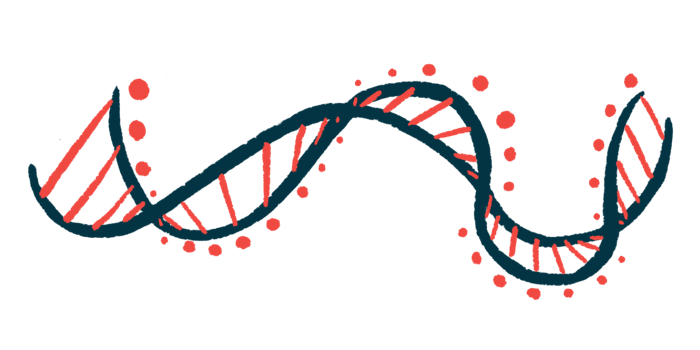Genetic deletion may drive obesity in PWS adults: Study
Researchers recommend added support for certain patients
Written by |

Adults with Prader-Willi syndrome (PWS) caused by a genetic deletion have higher obesity rates and more severe obesity than those with PWS associated with other genetic abnormalities, a study found.
“Given the higher risk of obesity observed in individuals with the deletion subtype, our results support the need for earlier and more intensive nutritional monitoring and behavioral support in this population,” the researchers wrote.
These associations were not observed among pediatric patients, who had similar body mass index (BMI, a ratio of height and weight) and levels of obesity across genetic types.
The study, “Relationship between body mass index and nutritional status across genetic subtypes of Prader-Willi syndrome,” was published in Clinical Nutrition ESPEN.
PWS is caused by genetic abnormalities affecting a specific region of the paternal copy of chromosome 15. Most frequently, these abnormalities take the form of genetic deletions, where that section of DNA is entirely missing. Alternatively, PWS can be caused by maternal uniparental disomy, where both chromosome 15 copies are inherited from the mother, or due to an imprinting defect that inactivates the paternal chromosome 15.
Insatiable appetite a common symptom
PWS symptoms include muscle weakness, short stature, an excessive appetite, and behavioral problems. People with PWS are at a higher risk of obesity and associated complications.
“Without specific interventions, obesity affects approximately 40% of children with PWS and nearly 100% of adolescents and adults, making it one of the most common causes of syndromic obesity,” the researchers wrote.
The team of researchers in Argentina aimed to investigate how obesity and BMI differ between people with PWS caused by genetic deletions and whose disease is associated with other genetic abnormalities. BMI is often used as a proxy measure of body fat, and obesity is defined based on BMI cutoffs.
“Understanding such differences might enable early anticipation of individual needs and facilitate the selection of more suitable treatment options, ultimately improving the quality of life for individuals with PWS,” the team wrote.
They retrospectively analyzed data from 41 PWS patients: 68% with a deletion subtype and 32% with non-deletion subtypes. None were receiving standard treatment with growth hormone, which can influence body composition and BMI.
The mean age across both groups was about 19, and other demographic characteristics were also similar.
Participants with genetic deletion mutations had significantly higher BMI than those with non-deletion abnormalities (42.4 vs. 35.5). Correspondingly, significantly more people in the deletion subtype group had BMI-defined obesity (93% vs. 62%).
After breaking down the analysis by age, results varied. Among the 16 children younger than 18 (94% obese), there were no significant differences in BMI or obesity status between genetic subtype groups.
The original findings held in the adult group, though, with those carrying genetic deletions showing significantly higher BMI (47.8 vs. 35.1) and obesity rates (94% vs. 50%) than those without. Rates of obesity classes 2 and 3, which are the most severe, were also significantly higher in the deletion group (82%) than in the non-deletion group (25%).
Data from the 18 participants with a known type of deletion (large or small) showed no significant differences in BMI or obesity rates across deletion types.
Among all participants, a significantly greater proportion of patients in the non-deletion group was on psychotropic drugs relative to the deletion group (85% vs. 46%). This came as a surprise to the team, because many of these medications, which alter mental state and include antipsychotic and anti-anxiety treatments, can cause weight gain.
“In PWS, especially in patients with the deletion subtype, these considerations highlight the importance of selecting psychotropic medications with lower metabolic risk, providing nutritional counseling, and systematically monitoring metabolic parameters,” the researchers wrote.
They noted several limitations of their study, including its retrospective nature and the small number of patients. Larger, multicenter studies that follow patients over time are needed to confirm the findings, they said.
“Future research should focus on comprehending the underlying mechanisms of these differences and their long-term health implications, allowing personalized interventions for effectively managing nutritional and metabolic health in PWS,” the researchers concluded.






